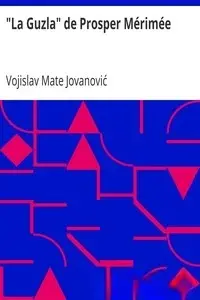Résumé
Voyslav M.
Yovanovitch's scholarly work examines Prosper Mérimée's "La Guzla," a 1827 collection of fabricated Illyrian ballads that exemplifies Romantic literary hoaxes, tracing its origins in French literature, folk poetry traditions, and influences from figures like Charles Nodier and Claude Fauriel.
The study delves into Mérimée's sources, including travel accounts, classical literature, and Slavic folklore, while analyzing themes such as vampirism, heroism, and domestic life in the ballads.
It further explores the book's reception and impact across Europe, including translations by Pushkin and critiques by Goethe, highlighting its role in promoting interest in Balkan poetry during the Romantic era.
